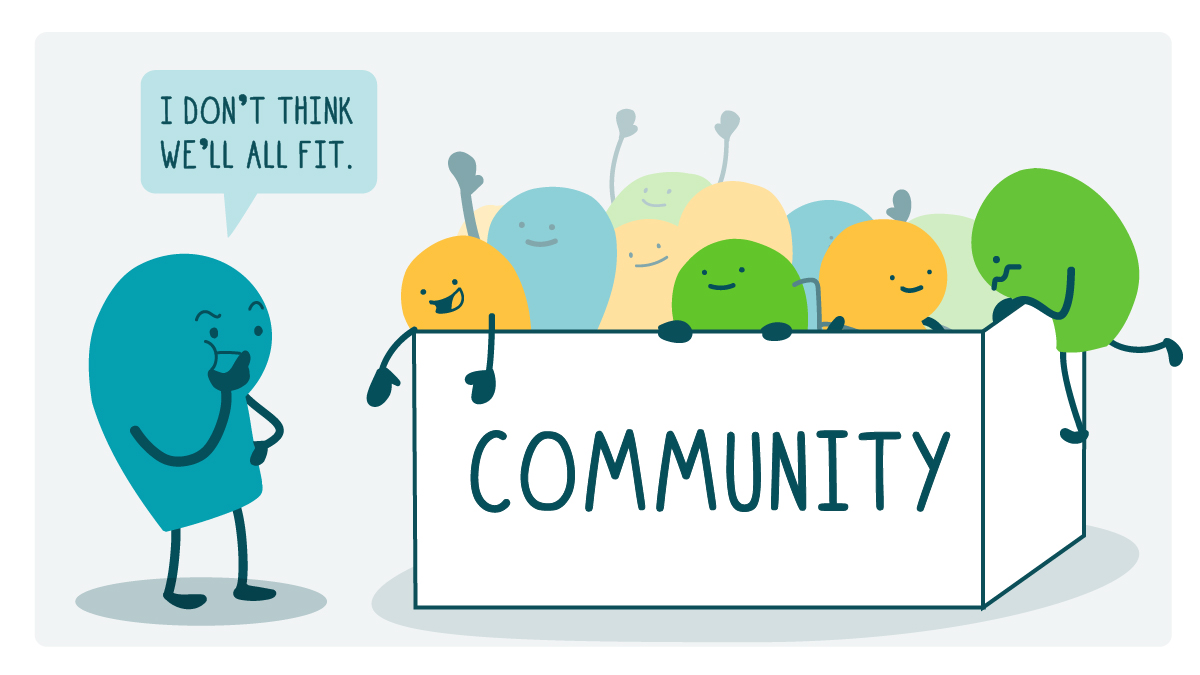
If there’s 1 word we say a lot in public health, it’s “community.” In addition to how it comes up anecdotally in our work, the word is baked into key public health concepts — think “community health,” “community-based orgs,” “community-based participatory research,” and the like. This makes perfect sense, as oftentimes public health professionals do work in a single, specific community.
But today we want to talk about a different use of the word “community” that we’ve been noodling on here at We ❤️ Health Literacy HQ: when health comm and public health professionals use the singular form of “community” to write (and talk) at a high level about our audiences. So, the LGBTQ+ community. The Black community. The autistic community.
Though it’s not uncommon to use the word like this (we’ve all done it!), let’s pause and think about what it implies when we “singular community” those groups of people. (And yes, we just used “singular community” as a verb, which it’s not — but stick with us.) There certainly isn’t only 1 LGBTQ+ community, is there? What about a single Black community? One set of autistic people comprising 1 autistic community? Absolutely not!
Rather, we know that our audiences reflect and include the diverse identities of all the individuals within those audiences. Which is exactly why we think it’s time to banish these massively oversimplified catchall terms from our health comm vocabularies! Sometimes, this is as simple as switching to plural:
- Instead of: The Black community in the United States has been disproportionately affected by COVID-19.
- Use: Black communities in the United States have been disproportionately affected by COVID-19.
And other times, you might want to skip “community” altogether:
- Instead of: The autistic community often prefers identity-first language.
- Use: Many autistic people prefer identity-first language.
One more thing: In addition to being reductive, normalizing use of the singular form of “community” to refer to our audiences can have sneaky implications. Words are powerful, and when we acknowledge through the language we use that there isn’t just 1 LGBTQ+ or Black or autistic community — even when talking to each other — it can serve as a reminder to keep the needs of our diverse audiences top of mind (hello, audience segmentation and intersectionality!). And that, dear readers, is a critical part of our job as health communicators.
The bottom line: Beware of the singular “community” when writing and talking about your audiences. Groups of individual people are never monolithic.
Copy and paste to share on social (and tag us!): Think twice before you use the singular “community” to refer to your #HealthComm audiences, says CommunicateHealth. Remember, groups of individual people are never monolithic! Read more: https://bit.ly/3V38WrD #HealthLiteracy #HealthCommunication
Browse recent posts